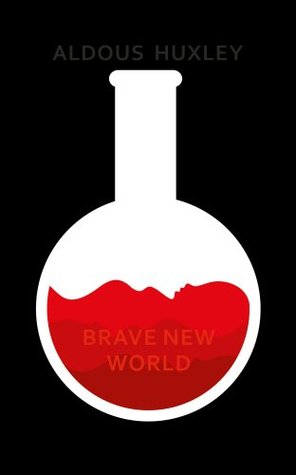
What if we lived in a futuristic world where conflicts between people are limited? What if everyone no longer bothered to question the quality of their lives? What if everyone… was just perfectly content? This is the world we are confronted with in Aldous Huxley’s Brave New World– except we very soon discover that it is not the utopia it
promises to be but rather something quite the opposite.
In its raw form, the World State, or the “Brave New World,” is a tyrannical society in which people’s free wills are suppressed and hearts are kept content via the widespread, frequent use of a drug known as soma. Citizens of the World State cannot realize that there are problems with their society –such as that they are essentially slaves of the World State– due to the powerful effects of soma. For them, there is no concept of “family” or “affection”; everyone is genetically engineered and heavily conditioned from birth to be content with their status in society, whether that be Alpha (upper-class), Gamma (middle-class), Epsilon (lowest class), etc. Everyone exists essentially only to be used, by each other or by the World State for labor. In creating such a society, the World State deprives people of what makes them human –the ability to be creative and have free thoughts, as well as free will. Not everyone in the World State is content. One such example is Bernard Marx, who had physical complications during the process of his genetic engineering and is someone who refuses to take soma. He sees the World State for what it is but also struggles with many inner conflicts due to long feeling like an outsider.
The World State’s polar opposite is Malpais, or the Reservation, which more closely resembles today’s society. Here, people have families, more traditional religions, and free will, which unsurprisingly causes the World State to look down upon and even shun “the Reservation” and its people. When Bernard visits Malpais, we are introduced to John, a young man born on the Reservation despite having a mother from the World State. John, who hasn’t yet seen the World State, is excited to travel there in person but soon grows disillusioned upon his arrival and his being called “the Savage.”
Although this book could certainly get “weird” at times, I think it’s still a worthwhile and compelling read. At least one point in all of our lives, I think we consider ways the world could be better, and some of us dare to dream of a truly utopian world. This book entertains that possibility, through a science fiction and philosophical lens, which makes it highly intriguing. Brave New World also helped remind me of the existence of cultures outside the ones I am most familiar with and that cultures/societies can have entirely different ways of thought and structures.
Having multiple characters narrate the story from their point of view was an added bonus for me, as it added a good amount of complexity. The resolution of the novel was additionally very powerful (don’t worry, I won’t spoil it for you), not to mention the book’s highly intriguing commentary on what it means to be human and what important values for a human society should be. Check it out today!

Review by ~ Andrew
SHARE THIS: